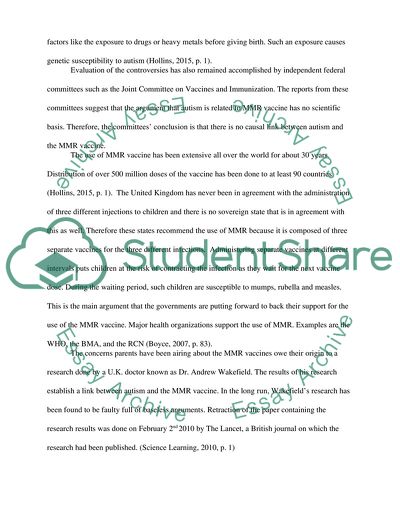Cite this document
(“The Measles, Mumps and Rubella Vaccine Essay Example | Topics and Well Written Essays - 2000 words”, n.d.)
Retrieved from https://studentshare.org/health-sciences-medicine/1694340-examine-the-controversy-over-the-mmr-vaccine-would-greater-public-understanding-of-science-have-prevented-it-would-that-have-been-a-good-thing
Retrieved from https://studentshare.org/health-sciences-medicine/1694340-examine-the-controversy-over-the-mmr-vaccine-would-greater-public-understanding-of-science-have-prevented-it-would-that-have-been-a-good-thing
(The Measles, Mumps and Rubella Vaccine Essay Example | Topics and Well Written Essays - 2000 Words)
https://studentshare.org/health-sciences-medicine/1694340-examine-the-controversy-over-the-mmr-vaccine-would-greater-public-understanding-of-science-have-prevented-it-would-that-have-been-a-good-thing.
https://studentshare.org/health-sciences-medicine/1694340-examine-the-controversy-over-the-mmr-vaccine-would-greater-public-understanding-of-science-have-prevented-it-would-that-have-been-a-good-thing.
“The Measles, Mumps and Rubella Vaccine Essay Example | Topics and Well Written Essays - 2000 Words”, n.d. https://studentshare.org/health-sciences-medicine/1694340-examine-the-controversy-over-the-mmr-vaccine-would-greater-public-understanding-of-science-have-prevented-it-would-that-have-been-a-good-thing.


